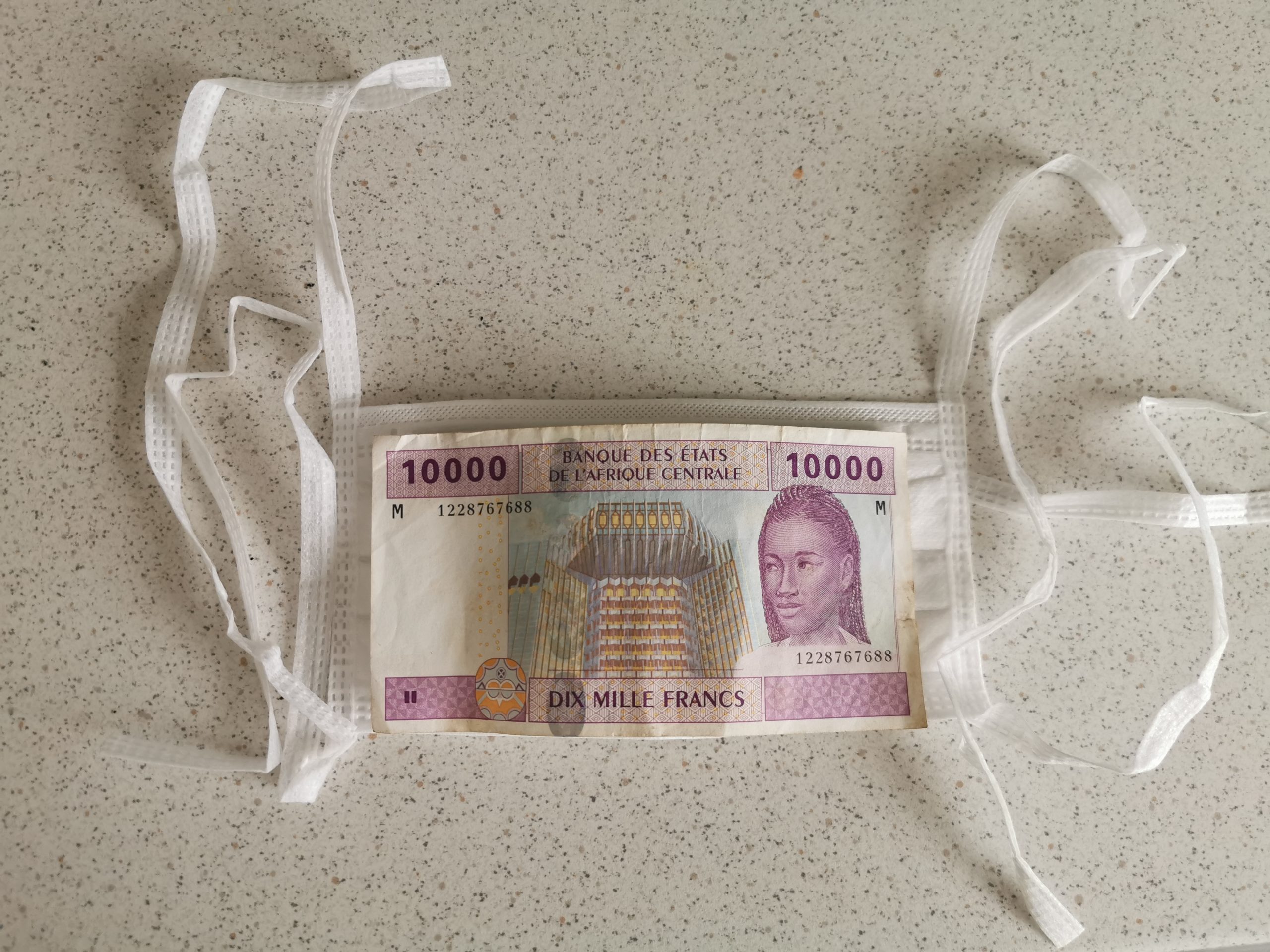BANK
AFRICA: Eco, the single currency of ECOWAS, postponed to 2025

The governments of the countries of the Economic Community of West African States (ECOWAS), meeting in ordinary summit on Sunday 24 January, decided to postpone the entry into force of the Eco in 2025.
The introduction of the Eco, the new single currency of ECOWAS, will not be effective in 2021. It was supposed to come into effect in exactly four months. The Heads of State of the economic community have taken the decision to postpone the resumption of the application of their convergence pact in January 2022. “From January 2022, the convergence pact, which includes the various deficit and inflation criteria to be met, will be implemented. (…) It is estimated that during the three years, the States must make efforts so that in 2025 we can go to the common currency,” declared the Burkinabe Minister of Foreign Affairs, Alpha Barry.
The reasons given for this postponement are the coronavirus pandemic, which has weakened the West African economies and caused more spending than expected for States, and non-compliance with the convergence criteria. It is clear, however, that there are still many essential points which have not been clarified. The federal central bank responsible for implementing the Eco’s monetary policy has not yet been set up. It remains to clarify the exchange rate regime, to settle the issue of the manufacture of coins and notes, among other things.
The governments of the West African Economic Monetary Union decided, by mutual agreement with France, to find an alternative to the CFA franc by creating the Eco. The major reforms related to the creation of this currency are aimed at the withdrawal of French directors from the Central Bank of West African States (BCEAO), the end of the operating account and the deposit of 50% of the foreign reserves of the West-the French Treasury and the continuity of the Eco guarantee by France. Paris thus remains the official guarantor of the Eco which keeps, like the CFA franc (1 euro = 655.96 CFA francs), a fixed parity with the euro.
It should be noted, however, that there are Eco and Eco. The ECOWAS Eco is carried by the 15 member countries (Senegal, Benin, Burkina Faso, Togo, Niger, Côte d’Ivoire, Guinea-Bissau, Mali, Gambia, Guinea, Nigeria, Ghana, Sierra Leone and Cape Verde). On the other hand, the Eco announced by Macron and Ouattara in December 2019, will be the single currency of the UEMOA countries, replacing the CFA franc.
It should be noted that ECOWAS initially formulated the idea of a single currency in 1983.
BANK
BAD: Mauritanian Sidi Ould Tah takes the reins of the institution

Mauritania is in the spotlight. On Thursday, May 29, 2025, Sidi Ould Tah was elected president of the African Development Bank (AfDB), at the annual meeting of the institution held in Abidjan. He succeeds Akinwumi Adesina of Nigeria, in office since 2015.
His election came after a hard-fought duel against Samuel Munzele Maimbo of Zambia, who finished in second place. The election, which was marked by major geopolitical and economic issues, took place against a background of high expectations regarding governance and development financing on the continent.
The Senegalese Amadou Hott, long perceived as one of the favorites, finishes in third place, followed by the South African Bajabulile Swazi Tshabalala. Despite significant diplomatic support, notably for Hott, the momentum in favour of Sidi Ould Tah has prevailed in the last few rounds.
Former minister and general manager of the Arab Bank for Economic Development in Africa (BADEA), Sidi Ould Tah is recognized for his experience and strategic vision. He will officially take office on 1 September 2025.
Photo credit: Forbes Africa
BANK
SENEGAL – 511.3 billion CFA francs in savings and 677 billion CFA francs in loans granted in 2022 in microfinance

The Senegalese Minister of Microfinance and Social and Solidarity Economy chaired, this Thursday, July 27, 2023, the 27th meeting of the National Committee for the Coordination of Microfinance Activities. Victorine Ndeye reported that microfinance affects 22% of the population with 511, 3 billion CFA francs in savings and 677, billion CFA francs in loans granted in 2022.
The 27th edition of the National Coordination Committee for Microfinance Activities was held on Friday.
According to the Minister of Microfinance and Social and Solidarity Economy, Victorine Ndeye, microfinance plays a crucial role in financial inclusion by providing accessible financial services to low-income populations and small entrepreneurs. It is a powerful tool to reduce poverty, create jobs, support local entrepreneurship and promote the economic empowerment of women and youth,” she says. “In 2022, microfinance expanded with a total of 296 institutions with 995 points of service across the country. Today 4,034,538 accounts remain active and Microfinance reaches 22% of the population, with 511.3 billion in savings and 617.3 billion in loans granted”. The minister indicates that his department is aware that we must reinvent to meet the new requirements and needs of a more vulnerable population in times of major crises that our country is going through in the face of exogenous shocks related to the Covid pandemic 19 and the Ukrainian crisis. “We intend to strengthen the synergy of microfinance actors, the government, technical and financial partners and microfinance institutions to meet the challenges we face. We must continue to promote financial stability, inclusion and transparency in the sector, but we must also address universal access to financial services through a better perception of the sector,’ she said. In his view, this requires a target-based approach, better risk management and strong governance. We also need to encourage innovation in the microfinance sector. Emerging financial technologies, such as mobile banking, innovative financing and our proven savings and credit models, offer real opportunities to expand access to financial services,’ she says. It is their responsibility to ensure that these innovations benefit everyone, including the most vulnerable and the most remote. ‘ We will continue to work towards a favourable regulatory environment that encourages investment, diversification of offerings and the expansion of microfinance institutions,’ she says.
BANK
WAEMU AREA – Growth of 5.4% of Gdp over one year

Economic activity in WAEMU remained buoyant in the first quarter of 2023, with a 5.4% increase in GDP over one year, after 5.3% in the previous quarter.
According to the information provided by BCEAO, the business climate indicator, which synthesizes the views of business leaders, remained above its long-term trend at 101.1 percentage points. This development reflects the continuing confidence of business managers in the favourable economic outlook. The growth gain, which is an indication of the minimum level of growth that would be achieved by the end of the year, is estimated at 3.4% in the first quarter of 2023,” the BCEAO informs.
The growth of Gdp in volume terms in the Union is the result of the continued good orientation of economic activity, particularly in the secondary and tertiary sectors. The contribution of the secondary sector increased from 0.6 percentage points (pdp) in Q4 2022 to 0.7 PDP in the quarter under review.
The contribution to growth in the tertiary sector was 3.4 pdp in the first quarter of 2023 compared to 3.3 pdp in the previous quarter. In contrast, the primary sector contribution edged down to 1.3 PDP in Q1 2023 from 1.4 PDP in Q4 2022.




